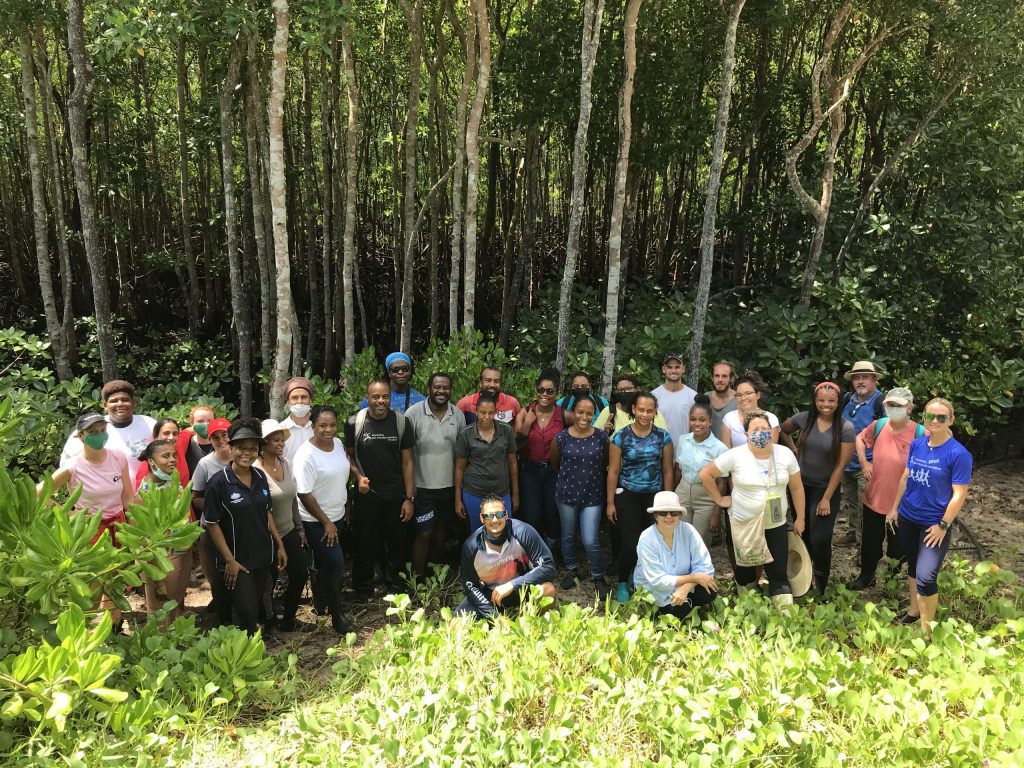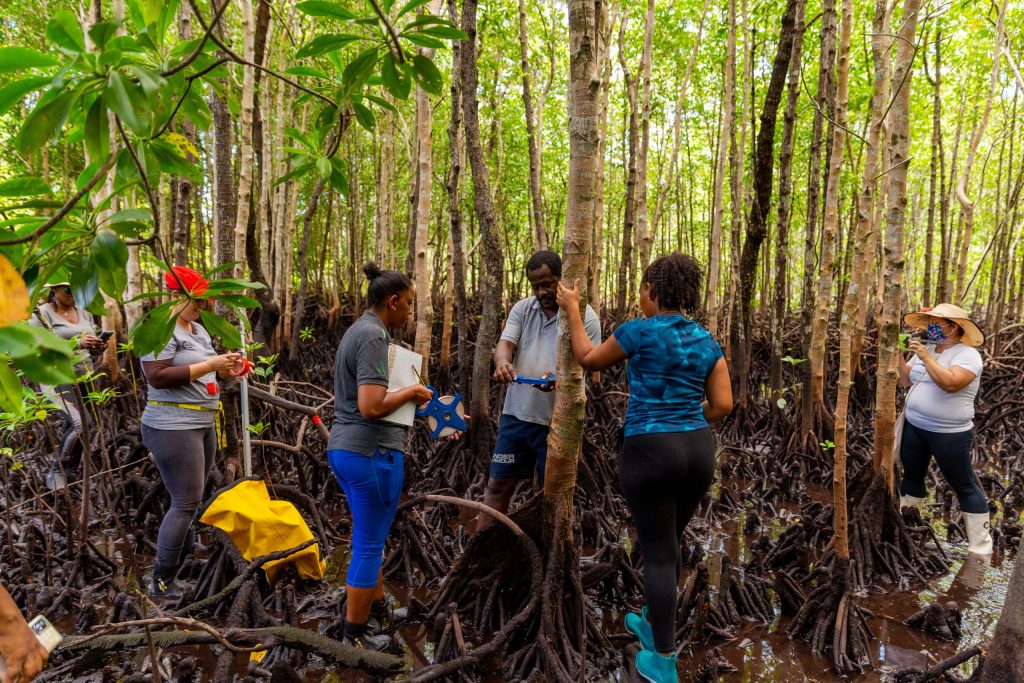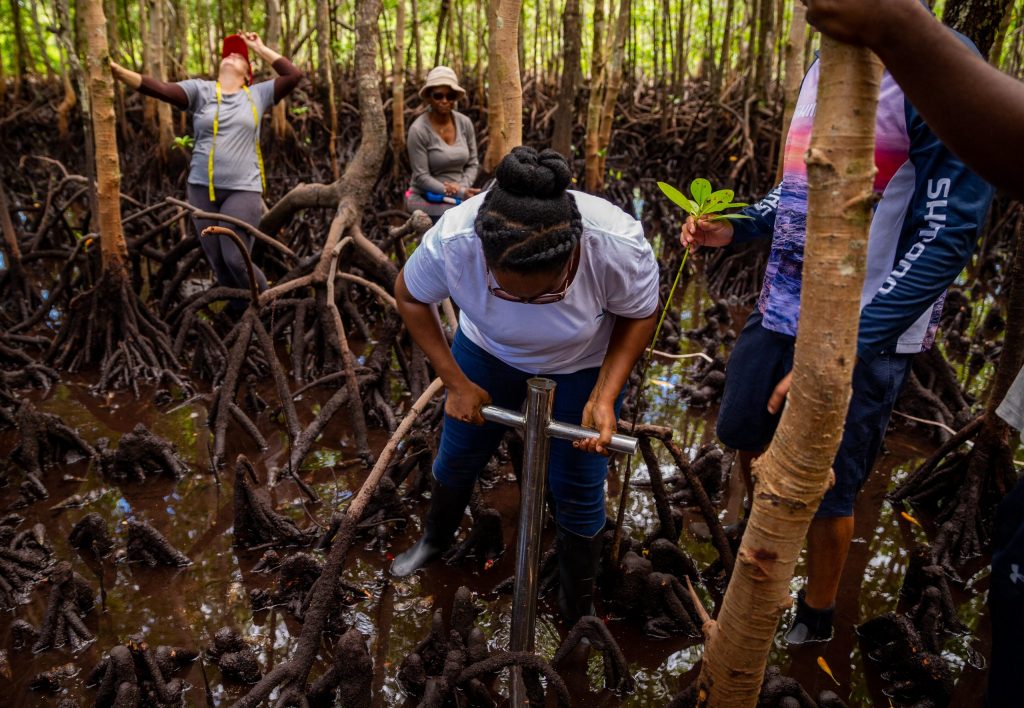More than 30 scientists from Seychelles participated in a blue carbon technical workshop aimed at demonstrating state-of-the-art sampling techniques to quantify and monitor blue carbon stocks.
Blue carbon is the carbon stored in marine ecosystems such as mangrove forests, seagrass meadows and saltmarshes. These ecosystems are one of the world’s most efficient natural carbon sinks, able to capture carbon up to 40 times faster than tropical rainforests and capable of storing it in the soil for millennial time scales.
“With Seychelles recently committing to incorporating blue carbon in its national greenhouse inventory (as part of their updated Nationally Determined Contribution), it is critical to upskill local scientists and resource managers in the survey of the national blue carbon pools,” said Prof Peter Macreadie, head of the blue Carbon Lab.
As part of the full-day workshop, a series of talks were given by the Blue Carbon Lab team in Australia. The talks included an initial session on general blue carbon concepts and sampling techniques, followed by a session detailing the blue carbon science in Seychelles. Scientists Dr Maria Palacios, Dr Melissa Wartman and Dr. Micheli Costa delivered the content online.
In the afternoon, workshop attendees headed into the mangrove forest of Port Launay (Mahé) where local experts (Dr Barry Nourice and Dr Ameer Ebrahim) demonstrated monitoring techniques focusing on mangrove forests. The mangrove forest of Port Launay, which covers 30 ha, is home to seven mangrove species, and has been declared a Ramsar site.
The former president of Seychelles, James Michel, opened the event with an inspiring speech. He highlighted the importance of coastal ecosystems for the prosperous future of Small Island-Developing States (SIDS) and the Seychelles’ commitments to protecting 50% of its seagrass and mangrove ecosystems by 2025 and 100 percent by 2030. “This is remarkable progress in the fight against climate change and it underlines the importance of these ecosystems as nature-based solutions,” said Michel.
The workshop was delivered by Deakin University’s Blue Carbon Lab in partnership with the James Michel Foundation (JMF) as part of the project – Roadmap to Blue Carbon opportunities in Seychelles. The project is being financed through a Blue Grant from the Seychelles Conservation and Climate Adaptation Trust (SeyCCAT).
Read more about the workshop here.



